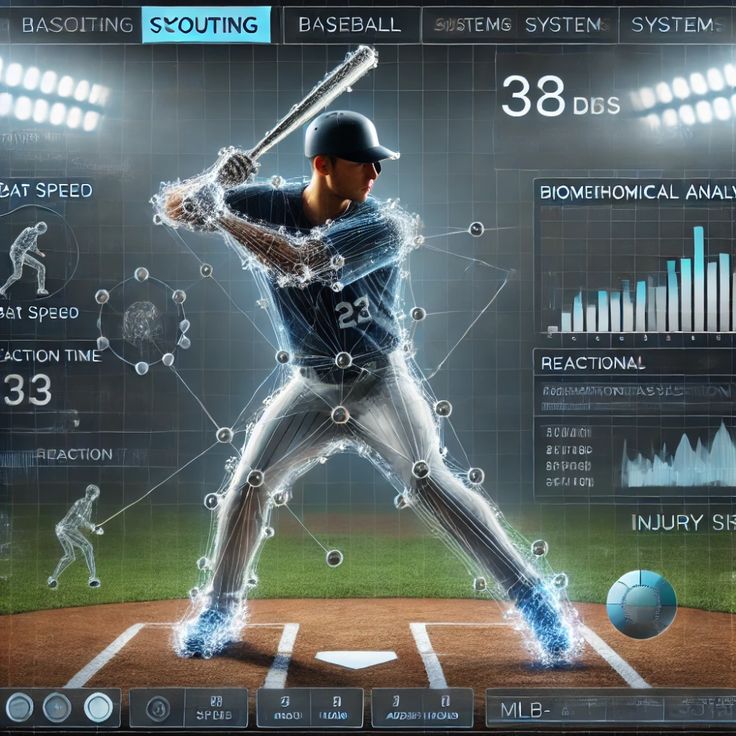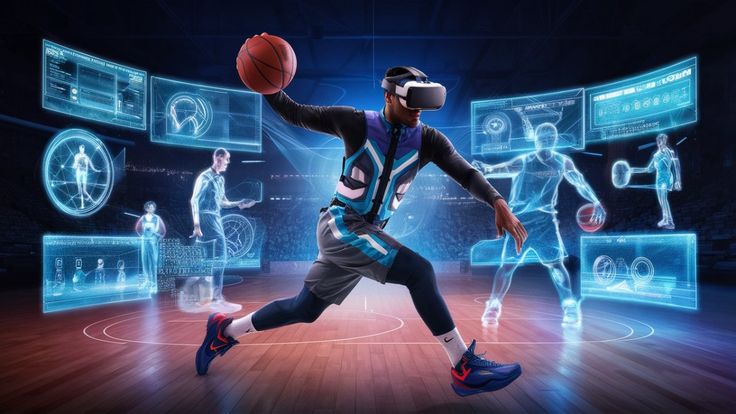
Empower sports teams, leagues, and venues with advanced data analytics, fan engagement tools, and performance tracking systems. From athlete monitoring to event automation, we build next-gen sports technology that drives success on and off the field.
We develop innovative software for the sports industry — including player analytics, fan engagement apps, and sports event management systems — helping organizations enhance performance, engagement, and revenue.




Leverage AI, IoT, and cloud technology to transform every aspect of sports — from training and performance monitoring to fan engagement and digital ticketing.
Collect real-time data on player movements, stamina, and skills. Analyze metrics to optimize training sessions and recovery plans. Identify performance patterns and track improvements over time. Use predictive insights to inform tactical decisions. Ensure players achieve peak performance while minimizing injury risks.
Simplify scheduling for matches, practices, and events across teams. Manage rosters, player stats, and contracts efficiently. Streamline communications among staff, players, and stakeholders. Monitor financials and budgets in real time. Maintain compliance with league rules and performance standards.
Offer secure, paperless ticketing for all sports events. Integrate mobile tickets with RFID and facial recognition. Enable fast and contactless venue entry for fans. Monitor attendance and access patterns efficiently. Provide personalized offers and seamless event experiences.
Deliver personalized content and interactive experiences to fans. Offer live statistics, polls, and gamified challenges. Encourage social sharing and community interaction. Track engagement and preferences for better targeting. Strengthen loyalty and grow your fan base through immersive digital experiences.
Collect and visualize key performance metrics across players and teams. Use AI and machine learning for trend prediction. Generate actionable insights for coaching and strategy development. Compare historical data to current performance. Empower decision-makers with interactive, real-time dashboards.
Deliver high-quality live streaming for games and events. Integrate real-time stats and interactive features. Engage remote audiences through chat, polls, and instant replays. Monitor viewership and analytics for better insights. Provide seamless experiences across web and mobile platforms.

Track in-game statistics, analyze team dynamics, and generate post-match insights with AI-driven dashboards.
Plan, track, and optimize athlete training sessions using data from wearables and motion sensors.
Unify communication among coaches, players, and management for seamless coordination and decision-making.
Gain a deep understanding of fan preferences, habits, and engagement trends. Analyze attendance patterns and content interaction across all channels. Segment your audience for highly targeted campaigns. Use insights to boost ticket sales, merchandise, and event participation. Drive better marketing decisions and increase overall fan loyalty.
Protect athlete and fan information with state-of-the-art encryption. Implement secure access protocols for all platforms and devices. Ensure compliance with GDPR and other privacy regulations. Regularly audit systems to prevent breaches and unauthorized access. Maintain trust and integrity across all sports data management activities.

Deliver a seamless mobile-first experience for fans and team members. Provide instant access to schedules, analytics, and live updates. Enable interactive features like fan polls, messaging, and content sharing. Optimize performance across devices for smooth engagement. Enhance fan satisfaction and increase team interaction on the go.
Measure brand visibility and engagement from sponsorships in real time. Track conversion metrics and revenue generated from campaigns. Evaluate audience interactions and demographic impact. Provide detailed reporting for sponsors to optimize future deals. Maximize ROI and strengthen long-term sponsorship relationships.
Our sports software developers create advanced platforms to manage leagues, teams, and tournaments efficiently. Enhance fan engagement and optimize sports operations digitally.sports management software
Track player stats, attendance, and performance efficiently. Streamline team rosters, training schedules, and transfers.team management software
Organize tournaments, fixtures, and standings seamlessly. Automate scheduling and scoring for leagues of all sizes.tournament software
Enhance fan interaction with live scores, notifications, and polls. Reward loyal fans with gamified experiences and promotions.fan engagement software


Build apps for fans, players, and coaches. Ensure smooth experience across mobile and web platforms.
Provide real-time match updates and scores. Keep fans informed and engaged throughout the game.
Automate rewards, points, and achievements. Encourage participation and loyalty for players and fans.
Technology enhances sports performance by tracking athlete metrics, analyzing gameplay, and optimizing training plans. Sports management systems also streamline event scheduling, team coordination, and fan engagement through real-time data insights.
Sports analytics involves collecting and analyzing performance data to improve decision-making. Coaches and analysts use it to assess player efficiency, develop strategies, predict outcomes, and prevent injuries through data-driven insights.
Yes. AI and machine learning power predictive models, video analysis, and performance tracking tools. These technologies identify patterns, evaluate opponent tactics, and help coaches and athletes make smarter, faster decisions.
Digital sports platforms create immersive fan experiences with live stats, interactive content, fantasy leagues, and social media integration. They enable fans to connect deeply with their favorite teams and events in real time.
Sports data includes sensitive athlete performance and health information. Secure platforms use encryption, access control, and compliance protocols to safeguard this data, ensuring integrity and privacy for all stakeholders.
Custom sports software helps organizations manage tournaments, player contracts, ticketing, and sponsorships efficiently. Tailored platforms integrate analytics, CRM, and media tools to deliver end-to-end operational excellence.
Emerging technologies like VR training, wearable sensors, blockchain ticketing, and AI analytics are redefining sports. These innovations enhance performance, transparency, and fan interaction on and off the field.
Wearables collect real-time biometric data such as heart rate, movement, and fatigue levels. This information helps coaches monitor fitness, prevent injuries, and customize training programs for peak performance.
Absolutely. Sports event management software automates registration, scheduling, ticketing, and live updates. It ensures smooth coordination among teams, sponsors, and fans while enhancing the overall event experience.
VR and AR are revolutionizing sports by enabling immersive training simulations, interactive broadcasts, and fan experiences. They allow athletes to practice scenarios safely and fans to engage with the game like never before.